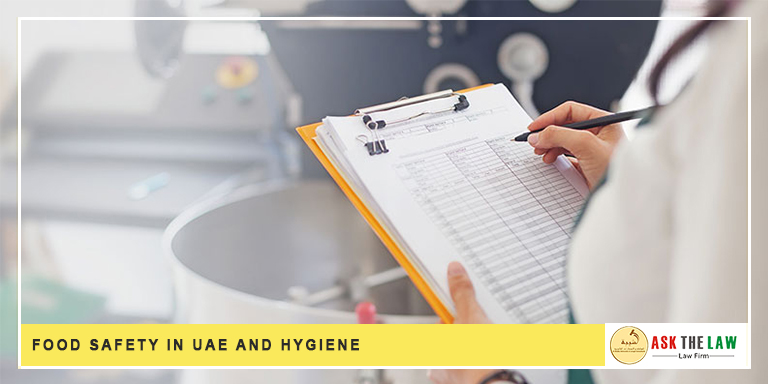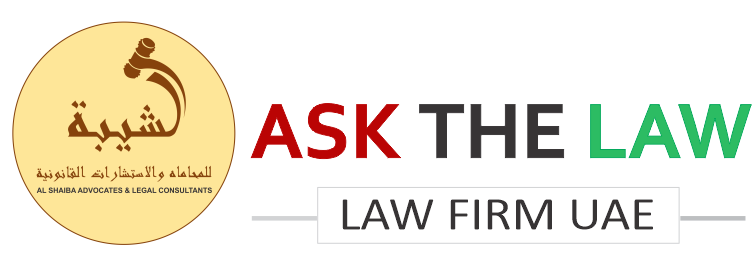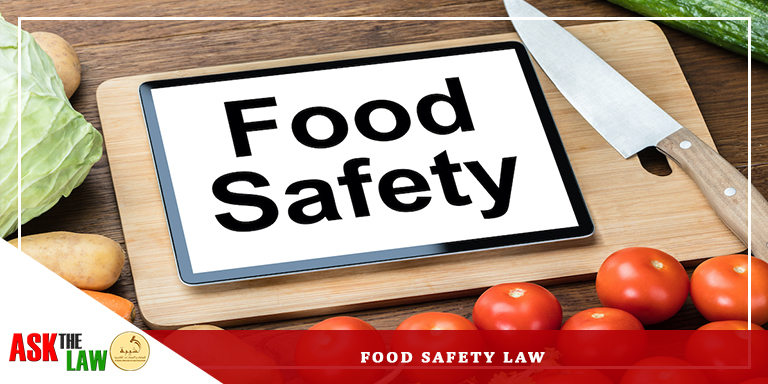
Food Safety in UAE and Hygiene
Food safety and hygiene are extremely important around the globe. Similarly, in the United Arab Emirates (UAE) food safety and hygiene are also given special importance. It is vital to ensure the health and well-being of consumers. It is among the top priorities in UAE.
Federal Law Implementation:
The UAE has implemented the Federal Law on Food Safety. The rule is also known as Food Safety Law. The aim is to safeguard the public from harmful or deceptive food practices. This also reduces the risks associated with food.
The Food Safety Law applies to various establishments involved in the production, manufacturing, preparation, processing, packaging, transportation, import, storage, distribution, sale, and export of food.
It Covers Both Facilities:
It covers both permanent and temporary facilities. Moreover, it also covers the food imported into the UAE or in transit after inspection by relevant authorities. Under the Food Safety Law, it is necessary to obtain official consent and approvals. Before engaging in any commercial, industrial, or professional activity related to food the approval is mandatory. Check with Ask The Law Al Shaiba Advocates for documentation details.
Additionally, food manufacturers, producers, and importers must register their products. They must register before they can be traded in the UAE.
Besides, Importing food into the country also requires approval. The approval is given by the Ministry of Environment and Water. Added, more relevant documents and certificates must accompany the food shipment.
- The individuals responsible for establishments, whether natural or legal persons are obligated to comply with the Food Safety Law. It is also important to fulfil other relevant specifications and associated regulations.
- Their responsibilities include ensuring the health, safety, and suitability of food for consumption. Moreover, they also look into implementing approved food safety systems. They should also notify authorities of any food poisoning health risks.
- They also take care of maintaining accurate data on food cards for tracking purposes. Additionally, they handle withdrawing or recalling unsafe food.
- Under the UAE’s Food Safety Law, it is necessary to obtain consent and registrations depending on the activity involved. Prior official consent must be obtained for any commercial, industrial, or professional activity related to food under the law.
- Food manufacturers, producers, and importers are required to register their products before they can trade them, as mandated by the Food Safety Law.
- Additionally, Article 8 of the law prohibits the import of any food into the UAE for the first time without approval. Approval is taken from the Ministry of Environment and Water.
It is also necessary to provide the required documents and certificates accompanying the food when importing it through the country’s ports.
The persons in charge of establishments play a vital role in implementing Food Safety Laws and associated regulations. They must be licensed and assume responsibility for complying with the law’s provisions applicable to the establishment they oversee.
- Article 9 of the Food Safety Law outlines several obligations for the persons in charge of establishments. Some of these obligations include:
- Ensuring that the food is healthy, safe, and suitable for human consumption in the country.
- Implementing approved food safety systems as specified by the UAE.
- Notifying the competent authorities of any food that poses a risk to customer health all around.
- Ensuring the accuracy and validity of the data on the food card associated with the food to facilitate tracking processes.
- Withdrawing and retrieving food if it is proven to be unsafe for human consumption or if it violates the provisions of the Food Safety Law or other technical regulations.
The Food Safety Law includes key prohibitions that establishments must adhere to. According to the law, establishments are prohibited from trading in rotten, harmful, adulterated, deceptive, or inappropriate food.
They are also prohibited, under the law. It also includes altering or disposing of the data or components of retained food without written consent from the competent authorities.
Violating the provisions of the Food Safety Law carries significant penalties. The provisions of the Food Safety Law carry penalties as specified in the law.
Trading in adulterated, harmful, or rotten food at any stage of the food chain can lead to imprisonment for a minimum of 3 months. It is also attached to a fine of up to AED 2,000,000.
Trading in food that contains pork or its derivatives, alcohol, or other products that violate Islamic principles without a license is punishable by imprisonment for at least 1 month and/or fines of up to AED 500,000.
Promoting, contributing to, or publishing a false description of any food to deceive consumers can result in fines ranging from AED 10,000 to AED 100,000.
Violating technical regulations may lead to fines of up to AED 100,000. Furthermore, there is a general penalty provision that specifies a fine of AED 10,000 for any violation not explicitly addressed in the law.
Trading in adulterated, harmful, or rotten food can result in imprisonment for a minimum of 3 months and/or fines of up to AED 2,000,000. Trading in food containing pork or alcohol, or products that violate Islamic principles without a license. It may lead to imprisonment for at least 1 month and/or fines of up to AED 500,000.
Providing false descriptions of food to deceive consumers can result in fines. The fines may range from AED 10,000 to AED 100,000. Violating technical regulations may lead to fines of up to AED 100,000. Moreover, a general penalty provision specifies a fine of AED 10,000 for any violation not explicitly addressed in the law.
Establishments need to adhere to the UAE's Food Safety Law and associated regulations. Failure to comply can result in severe fines and, in some cases, imprisonment.
Ensuring food safety and hygiene is not only a legal obligation. Moreover, it is also vital for protecting the health and well-being of consumers in the UAE.
Food hygiene violations in the UAE carry significant consequences and fines. Federal Law of 2015 on Food Safety outlines the penalties for violating the provisions of the law.
For trading in adulterated, harmful, or rotten food at any stage of the food chain, individuals can face imprisonment for a minimum of 3 months. It also leads to fines of up to AED 2,000,000.
These consequences and fines demonstrate the seriousness with which food hygiene violations are treated in the UAE. It equally emphasizes the importance of adhering to food safety regulations. It is important for the protection of consumer health.
Please be informed, that all the details about fines and penalties can be outdated or have been revised. Therefore, must consult the Advocates or contact the relevant department first.



